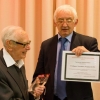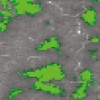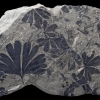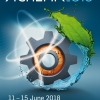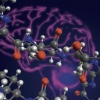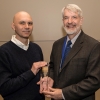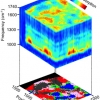News
Infrared Spectroscopy News
Observing the crucial first few femtoseconds of photochemical reactions requires tools typically not available in the femtochemistry toolkit. Such dynamics are now within reach with the instruments provided by attosecond science. In a study published in Nature Communications, researchers from Max Born Institute for Nonlinear Optics and Short Pulse Spectroscopy (MBI) characterise one of the fastest internal conversion processes in a molecule studied to date.
We are sad to report the passing of Dietmar Schoeffel.
Call for Nominations for the Norman Sheppard Award made by the Infrared and Raman Discussion Group.
Researchers from Umeå University in Sweden have described a new method based on molecular spectroscopy to study biochemical changes that occur in the pancreas during the development of diabetes.
PANalytical has appointed Aimil Ltd as the authorised representative for ASD NIR products in India.
For the first time, researchers have succeeded in establishing the relationships between 200-million-year-old plants using infrared spectroscopy and statistical analysis of organic molecules in fossil leaves.
Achema 2018 is inviting contributions to the Achema Congress and the PRAXISforums; deadline 22 September 2017.
A cooperation between Messe München India and the Indian Pharma Machinery Manufacturers Association (IPMMA) will collocate events jointly representing 600+ global and Indian companies.
Enhancements of photoacoustic spectroscopy enable analysis of single melanoma cells and improved detection of melanoma.
The WADI project is using hyperspectral, multispectral and thermographic infrared imaging to detect soil moisture and those leaks from water mains in rural areas.
The 2017 Tomas Hirschfeld Award has been made to Satoru Tsuchikawa of Nagoya University, Japan.
Infrared spectroscopy images provide new insight into the development of plaques in early-stage Alzheimer’s disease.
University of Sydney researchers have used infrared spectroscopy to spotlight changes in tiny cell fragments called microvesicles to probe their role in a model of the body’s immunological response to bacterial infection.
Researchers at Lancaster University have used infrared spectroscopy to detect subtle early warning signs that reveal a frog population is at risk from pollution.
Given the increase in food-related health problems, the challenge set for the EU Horizon’s Food Scanner prize of €1 million was to develop an affordable and non-invasive mobile solution that enables users to measure and analyse their food intake.
The Pittcon 2017 Williams-Wright Award has been made to Slobodan Sasic.
On 15 March Ghent University officially launches a prestigious research project on precision agriculture, led by Abdul Mouazen.
Analytik have been appointed as exclusive distributors for the NeoSpectra range of low-cost, miniaturised, OEM FT-NIR spectral sensors.
Researchers have reported a new development of hyperspectral infrared nanoimaging. It is based on Fourier transform infrared nanospectroscopy (nano-FT-IR) and enables highly sensitive spectroscopic imaging of chemical composition with nanoscale spatial resolution.
Researcher from the Graphene Flagship have developed a novel graphene-based infrared (IR) detector demonstrating record high sensitivity for thermal detection. Graphene’s unique attributes pave the way for high-performance IR imaging and spectroscopy.



